
The World Science Festival Brisbane | Gladstone Regional Program
This March, Gladstone residents have the opportunity to explore the wonders of science, technology, engineering and maths (STEM) as the World Science Festival comes directly from New York to Gladstone for the first time! The World Science Festival is based in New York where it is held annually across the city in May. The inaugural festival was held in 2008 and has grown in presence and programming to become one of the world’s largest community science events.
Queensland Museum "Nets" the "Rights"
Last year, the Queensland Museum Network (QMN) secured the rights to host the World Science Festival Brisbane – an Asia Pacific offshoot – for the next six years. This event will be scheduled annually in March until 2021. The team at QMN recognised the importance of bringing the Festival not only to Brisbane, but also to Queensland’s regional centres and after successful events in Chinchilla and Townsville, this year’s regional offering will double and see Gladstone and Toowoomba welcome the event to their cities. Be sure to take part in this exciting event as it starts off the month-long celebration of the Festival across Queensland.
The Museum Gives some of the "Rights" to the Regions
The Festival’s regional program heads to Gladstone on Saturday, 4 March for a FREE community event and will provide residents and the local community the opportunity to experience this world-class event. Featuring exhibitions, workshops and talks throughout the day, STEM professionals will explain how scientific discoveries will lead to greater innovation within their fields. At this free event, community members will be able to speak with these science leaders to learn how research is crossing boundaries to help us better understand the mysteries of the past and our current environment in order to help shape the future.
Gladstone – Fri 3rd & Sat 4th March, 2017
Toowoomba – Fri 17th March, 2017
Townsville – Sun 26th & Mon 27th March, 2017
Brisbane – Wed 22nd – Sun 26th March, 2017
Chinchilla – Fri 31st March & Sat 1st April, 2017
The Gladstone event is presented by Queensland Museum and Queensland Government, with strategic partners Tourism and events Queensland and Gladstone Region. The Festival would not be possible without the support of community partner QGC.
The early Gladstone dates allow residents to become familiar with the systems and ideas before the main Brisbane event from Wed 22nd to Sun 26th March 2017. Cover images are courtesy of Queensland Museum and CERN.
Gladstone's Student Day, Friday 3rd March
Gladstone's Friday program is designed for students from school years 7, 8 and 9. Each session will include opportunities interact with artifacts; marvel at exhibition displays and experience some practical hands-on science demonstrations. This is free, from 9.30 am, and at the Entertainment Centre, Map 8 E5; as this is for school groups, bookings are required, ph 3840 7555.
Students have the opportunity to speak in small groups with science professionals about the big four words - Science, Technology, Engineering, Mathematics. These are cutely abbreviated to STEM. So they can discover the wonder, awe and inspirational career pathways available in STEM.
Stimulating year 7 and 8 students about the stem, or trunk, of a tree of knowledge just might encourage many to really study mathematics and science in years 9, 10, 11 and 12. Encourage them to do the two to three hours study every night that is really necessary to take them to the level needed to highly succeed at university; of course, later in their careers, they bring just bring 'glory to Gladstone' with their own discoveries and research.
Gladstone's Community Public Science Day, Sat 4th March
Gladstone's Saturday events provide residents of Gladstone with science workshops, activities and displays. Leading scientists explain how discoveries in science lead to innovation. This free event is on from 9am till 4 pm, and at the Entertainment Centre, Map 8 E5.
Bookings are free, but required for this event. Bookings can be made through the GECC website: gladecc.com.au/event/world-science-festival/
More detail about the Gladstone program is given in the Gladstone timetable and information nearer the end of this article.
Brisbane "Apprentice Program" Wed 22 till Sat 25 March
Willing-to-travel students from years 10, 11, 12 can attend the Brisbane "Apprentice Program" in Brisbane.
The World Science Festival Apprentice Programs are small, hands-on workshops in which renowned scientists, technologists and innovators educate curious minds on the workings and wonders of their chosen fields.
In small groups, students will become the scientist’s apprentice, in the field or the lab depending on the discipline. If you become an apprentice you’ll also gain access to the secret worlds of labs and underground plants that few ever get a chance to witness. You may even discover your future career!
Some highlighted programs include:
Forensic Scientist: Wednesday 22 March, multiple sessions, $10 at Griffith University (Map 626 A5)
Microbiologist: Thursday 23 March, multiple sessions, $10 at QIMR Berghofer, 300 Herston Road, Brisbane
Roboticist: Friday 24 March, 10am – 2pm, $10 at QUT Gardens Point, George Street, Brisbane
Geneticist: Saturday 25 March, 12 – 1.30pm, $10 at QIMR Berghofer, 300 Herston Road, Brisbane
This program is designed for high school students and young adults. Be quick though as places are strictly limited.
See World Science Festival for further details and to explore the full Apprentice Program.
World Science Festival Brisbane
In 2017 the festival will welcome scientists and thought leaders from around the world. These include:
Professor AC Grayling, philosopher and author;
Professor Barry Barrish, director of the Laser Interferometer Gravitational-Wave Observatory (LIGO); Scientist in Charge at The Metropolitan Museum of Art in New York, Marco Leona;
The Director of the National Science Foundation in the US Dr France Cordova.
They will join the first Australian in space – former NASA astronaut Dr Andy Thomas; Australia’s Nobel Laureate Professor Brian Schmidt; Australia’s Chief Scientist Dr Alan Finkel; former Australian of the Year Professor Ian Frazer; science journalist extraordinaire Robyn Williams; and Australia’s favourite science communicator Dr Karl Kruszelnicki.
Students participate
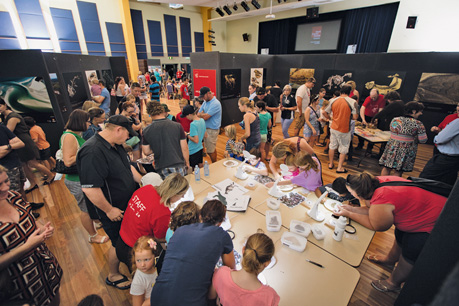
A group of students and lecturers in active science participation.
AARNET IGLEw
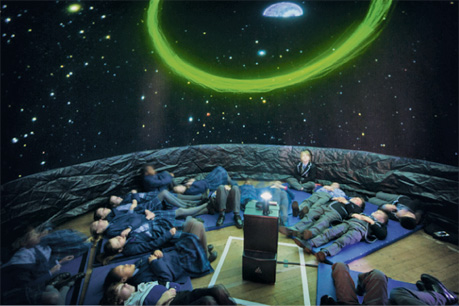
About: The IGLEw is a mobile inflatable immersive 3D theatre that combines gaming technologies and visualisation tools to provide students with interactive learning experiences in a visually rich setting. Students also access real-time data from science and research organisations in Australia and across the globe. This fully interactive, visually engaging experience presents complex concepts in an easy-to-understand learning context. Students experience fly-through tours brought to life by imagery from global telescope networks and immersive 3D projection and visualisation tools, accessing multiple live data sources from within the IGLEw.
Oh, these letters. IGLEw = "Immersive Global Learning Environment"; sorry, could not work out the "w" - could mean 'wide', 'world' or be a model number. AARNET = Australian Academic and Research Network.
Marine
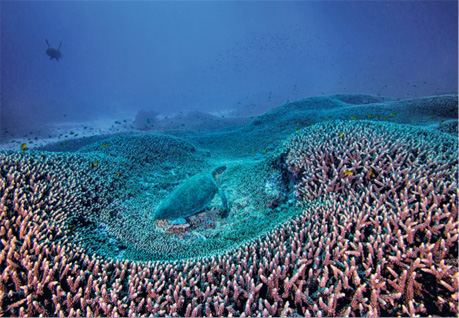
About: Students can guide themselves through the Queensland Museum Marine display and learn about the Great Barrier Reef and coral habitats through visually engaging displays and touch and feel reef objects.
The Wonder of Fossils
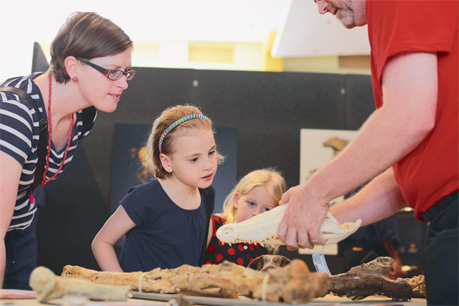
The wonder of fossils. Photo from Chinchilla 2016 regional Science Festival.
The Peacock Spider
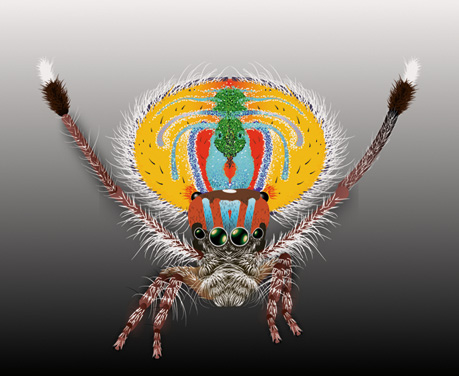
Dr Robert Raven, the Qld Museum arachnologist, particularly likes this photo of the Male Peacock Spider from Wikimedia Commons.
We are particularly thankful to the author/photographer, K. D. Schroeder, through License CC-BY-SA 3.0 for allowing Pocket Books to reproduce this photo, with the assistance of the Queensland Museum Network.
Yes, nature does have this coloured spider – not only nature, but only in Australia, with many in Queensland, and small areas of other states. Maratus volans is part of the jumping spider family of Salticidae, with the genus Maratus being peacock spiders. Only 5mm in body length both sexes are brown when young. The male later develops the peacock type colourings and engages in dance rituals lasting up to four minutes to attract the attention of the female. If he is particularly showy and active, and very lucky, the female selects him for mating, perceiving that the genus is safe with his contribution. If he is very unlucky, she eats him. The just unlucky don't get to mate, and manage to use their jumping ability to escape.
Volans, the species name, means flying in Latin. Some were originally thought to have been seen using small flaps as wings or supporters to extend their jumps. The Australasian Arachnological Society later decided these small spiders probably didn't use their flap-like extension of the abdomen for this assisted jump purpose; however, as there may still have been some doubt, the Society allowed the flying name to be retained.
Dr Rob Raven will be chatting about all things spiders during the Gladstone Community Day.
Student Program

The school program for years 7, 8, 9 involves about 200 students in two tutorials of 100. Each group will enjoy a workshop hosted by "Power of Engineering", a "Speed Chat with a Scientist" session, and a presentation by Dr Catherine Ball.
Discussions on inspiring career paths are presented by:
Community Day
The program gives residents of Gladstone and surrounding areas the opportunity to explore the wonders of science through workshops, hands on activities and visual displays. Leading scientists explain how scientific discoveries will lead to greater innovation within their fields. At this free event, community members are able to speak with these science leaders to learn how research is crossing boundaries to help us better understand the mysteries of the past and our current environment in order to help shape the future.
Palaeontology
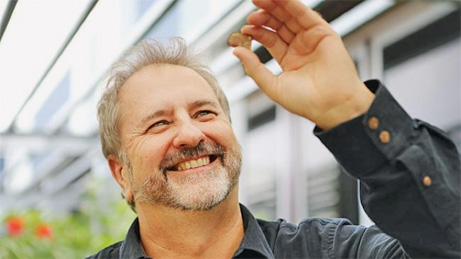
Speaker: Dr Andrew Rozefelds, Head of Geosciences, Queensland Museum Network
Presentation topic: In search of ancient Queensland – new discoveries and what they tell us
About: Understanding the past, both in terms of the animals and plants, reveals information about past climates and the environmental changes that have occurred over millennia to the Australian continent. Understanding the past allows us to also predict the future and the potential impact of climate change. Andrew is Head of Geosciences in the Queensland Museum, which houses the largest collection of fossils in the Southern Hemisphere. Andrew’s research interests are varied but a central focus has been on the history and evolution of Australia’s rainforests through the study of both living and fossil plants. He has written over 70 research papers pertaining to living and fossil plant systematics, vertebrate palaeontology and other themes.
Wild State
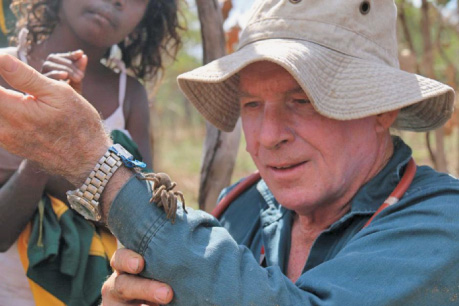
Speaker: Dr Robert Raven, Head, Terrestrial Biodiversity & Senior Curator, Chelicerata, Queensland Museum Network.
Presentation topic: Taxonomy of local specimens
About: Common spiders in the area will be explained with emphasis on the dangerous ones. Myths about spiders will be examined. Dr Raven has been spider Curator at the Queensland Museum for 30 years and is a spider bite consultant for the Poisons Information Centre. He has named over 400 species of spider including trapdoor, funnel web and tarantula spiders. His present interest is in the larger ground spiders that kill and eat toads including Racing Stripe, Huntsman and Water spiders.
Understanding Skin Cancer

Speaker: Madeleine Kersting Flynn, Biomedical Illustrator, QIMR Berghofer Medical Research Institute.
Presentation topic: The Queensland sun
About: Living in the Sunshine State, it helps to know how to be sun-safe. Make your own UV bracelet and watch the beads change colour with exposure to the sun. You’ll be able to test what blocks the UV rays the best! Madeleine has the privilege of being “behind the scenes” with some of the most brilliant minds on earth and has a love of studying and understanding how living things are put together. Madeleine works on the cutting edge of medical research and technology, with access to places that are off limits to most – from cadaver labs to 3D imaging facilities.
Minerals and Gems
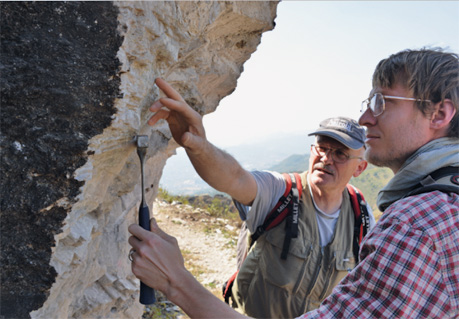
Speaker: Dr Aaron Palke, Senior Curator Mineralogy, Queensland Museum Network.
Presentation topic: The hidden world of minerals
About: Minerals play an important role in our everyday lives from the metals in the phone in your pocket to the sand that made your glasses to the sapphires in your earrings. But what are minerals, how do they form, and where are they found? Join Aaron Palke on a tour of the world of mineralogy and learn about these questions and more. Aaron Palke is a Senior Curator in mineralogy at the Queensland Museum and also works as a Lecturer in mineralogy at The University of Queensland. Before coming to Australia Aaron was a researcher at the Gemological Institute of America in Carlsbad, California.
Power of Engineering
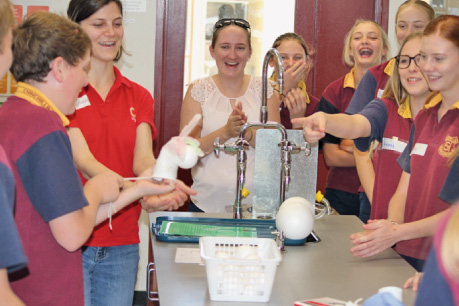
Speaker/s: Katie Jones, Senior Process Engineer at Seqwater, engineering graduates and engineering university students from a variety of disciplines.
Presentation topic: How you can change the world around you with engineering
About: We engage and inspire young people to create the future and change the world through engineering. In these interactive and hands on workshops, students will solve problems that engineers face and see how engineering can solve challenges for people. They will learn that engineering isn't just about maths and hard hats, but also communication, teamwork and leadership.
Australian Science Innovations
Presentation topic: Science Olympians
About: Do you have what it takes to be a Science Olympian? Test your speed, precision and hand-eye coordination in a series of tasks designed to see if you have what it takes to be Australia’s next Science Olympian. Science Olympians will be on hand to take you through your paces, give hints and tips and share their experience with you. You will hear firsthand what it’s like to travel the world and compete as a science student - and learn what it takes to win a medal.
Parasites: Life in Inner Space
Dr Marissa McNamara, Parasitologist Research Officer, Queensland Museum
Be prepared to embark on a voyage to discover aliens… not in the vacuum between planets and stars, but in the many habitats inside (and outside) organisms! Parasites are found everywhere, and their incredible adaptations allow them to live in places you would never think about – or don’t want to. In this talk Marissa McNamara will discuss different aspects of parasitism, the biodiversity of parasites, and some of the many ways parasites can affect our lives.
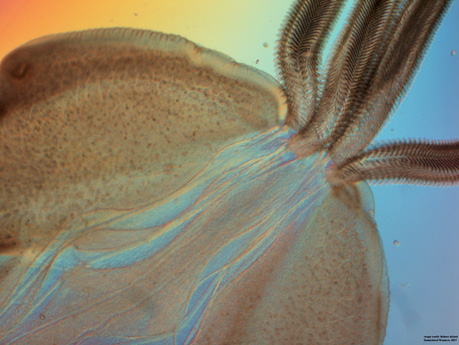
Image Credit: Robert Adlard, Queensland Museum, 2017
Atomic Kids!
Steve Gramenz, Learning Officer, Queensland Museum. This inter-reactive workshop will have children getting hands-on with elements, constructing 3D molecule models and performing chemical reactions that will blow their mind!
Drones for good (and for fun!)
Dr Catherine Ball, Managing Director, Elemental Strategy. Drones can save lives, protect the environment, and help empower communities. This presentation will show what some drones can look like, and how we can use them.
Street Science Show
Steve Liddell, Street Science. Science Steve from Street Science brings his seriously fun and educational science show - perfect for entertaining both kids and adults alike with fiery and explosive demonstrations.
Spiders of the greater Gladstone area: The good, the bad and the ugly
Dr Robert Raven, Arachnologist, Queensland Museum. Common spiders in the area will be explained with emphasis on the dangerous ones. Myths about spiders will be examined.
Some of these are outlined below.
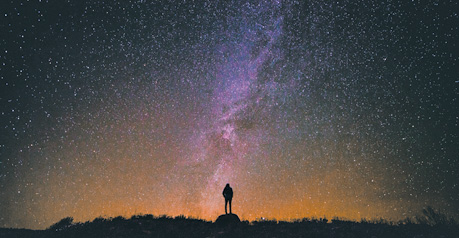
“What we know is a drop, what we don’t know is an ocean.” Isaac Newton
Long before Newton was a boy and since, scientists have worked tirelessly to expand the frontiers of human capacity and understanding. But science’s contributions to a productive economy, healthy population and sustainable world often take decades to play out and are difficult to price into tight funding budgets.
Hadron Collider
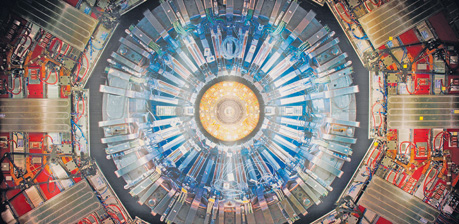
Step inside the World's greatest experiment. This event celebrates the world’s biggest and most powerful particle accelerator, operated by the CERN consortium in Geneva, Switzerland. It will feature a discussion by a panel of international guests including Dr Harry Cliff, particle physicist and in-house physicist and curator of the Hadron Collider exhibition, Science Museum, London, followed by a guided tour of the exhibition Hadron Collider: Step Inside the World’s Greatest Experiment.
Gravitational Waves
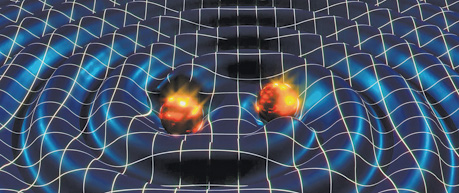
A New Era of Astronomy Begins
On 14 September 2015, a ripple in the fabric of space, created by the violent collision of two distant black holes over a billion years ago, washed across the Earth.
As it did, two laser-based detectors, 50 years in the making - one in Louisiana and the other in Washington State - momentarily twitched, confirming a century-old prediction by Albert Einstein and marking the opening of a new era in astronomy.
In the Brisbane sessions, some of the very scientists, Prof Barry Barish & Prof Brian Schmidt, responsible for this most anticipated discovery of our age explain how gravitational waves will be used to explore the universe like never before.
People behind the scenes
Some of the people who are helping put together the World Science Festival include:
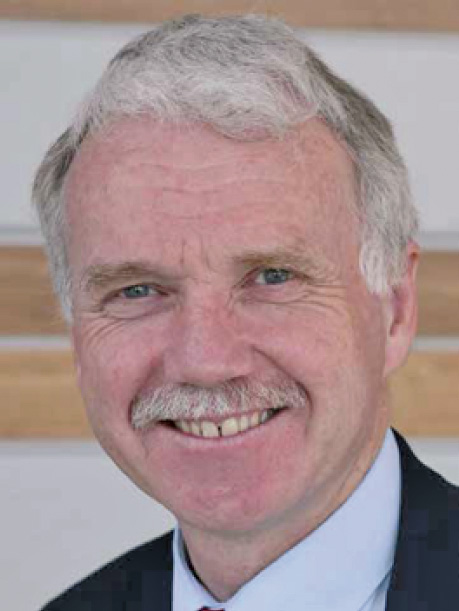
Professor Aidan Byrne
The Festival’s Guest Curator is Professor Aidan Byrne. Byrne is the Provost and Senior Vice President of The University of Queensland. He has 30 years’ experience in science research, a PhD in nuclear physics, and was director of the Australian National University’s College of Physical and Mathematical Sciences.
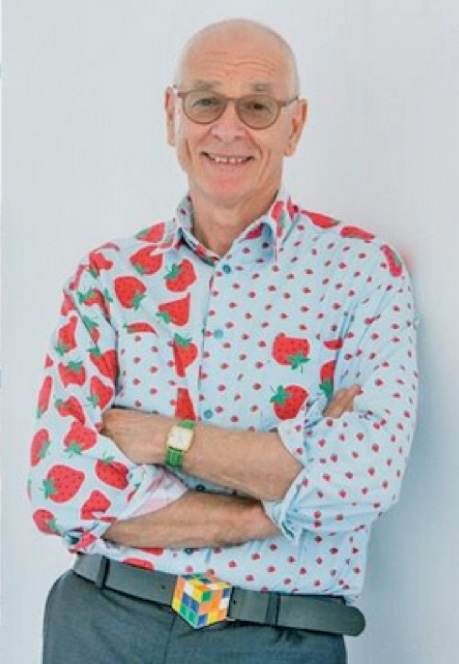
Dr Karl Kruszelnicki
Dr Karl is one of Australia’s favourite authors and science communicators. He holds a Bachelor of Science degree in Physics and Mathematics, a Master of Biomedical Engineering, and a Bachelor of Medicine and Surgery. He has studied Computer Science as well as reading for a Master of Science (Qualifying) degree in Astrophysics. Dr Karl has worked as a physicist, a car mechanic, a taxi driver, a T-shirt manufacturer and a doctor.
Brian Green
Co-founder of World Science Festival. Prof Greene is a renowned string theorist (about the universe). After him is named a Queensland native spider, Dolomedes briangreenei, which uses vibrations, or tiny waves, to navigate across water. With his study of gravitational waves, or ripples on the surface of space and time, the good professor is particularly pleased with this spider being named after him. He is physics professor at Columbia State University, USA
Tracy Day
Co-founder and CEO, World Science Festival. As CEO she oversees the creative and programmatic offerings of the festival. She is a four-time national news Emmy award-winning journalist and has produced live and documentary programming for the nation’s preeminent television news divisions, including ABC, for over two decades. At ABC News she was producer for “This Week” with David Brinkley, editorial and field producer for “Nightline,” and story editor for the news magazine “Day One.”
Suzanne Miller
CEO and Director, Qld Museum Network. Professor Suzanne Miller BSc (Hons), PhD, FGS, FMinSoc, FAIMM, FGSA. Professor Miller commenced as CEO and Director of the Queensland Museum Network on 2 July 2013 after six years leading the South Australian Museum as Director. Previously the Edinburgh native spent 12 years with National Museums Scotland, latterly as Keeper of Natural Sciences. Suzanne has previously held positions as Research Fellow at the Universities of Lancaster and Oxford, Lecturer in Earth Sciences at the University of Aberdeen and the Open University and as Geologist with the British Antarctic Survey. (Early in 2016, our own son, Gerard Janez Clarke, then 23, completed his Masters in Neuro-Psychology at Edinburgh University.)
Alan Alda
While Alan is well known for being a doctor on the TV series MASH about the 1950's Korean War, he also, for 14 years, served as the host of Scientific American Frontiers, a television show that explored cutting-edge advances in science and technology. He is currently a visiting professor at Stony Brook University and a founder and member of the advisory board of the university's Alan Alda Centre for Communicating Science and the Future of Life Institute. He serves on the board of the World Science Festival and is a judge for Math-O-Vision.
He said of the Brisbane Science Festival: "so we've prepared a hundred of some of the world's leading scientists". On January 28, 1936, Alan was born Alphonso Joseph D'Abruzzo, in the Bronx, New York City.
Judith Cox
President, Science Festival Foundation. Dr of Law from University of Michigan Law School
The World Science Festival Brisbane cultivates a wonder and curiosity for science in our schools, our homes and our communities. It makes science accessible to and for all and inspires us to notice that science is all around us. This world-class event comes directly from New York to Gladstone and kicks off the month-long 2017 celebration of the Festival. This free event is one not to be missed!
Gerry Clarke B.PED.
That’s Bachelor of Property Economics & Development from USC.
With much assistance from Heidi and Laura from the World Science Festival organising committee.